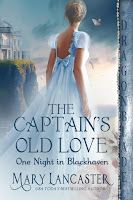I received this book for free from Netgalley. That did not influence this review.
Much Ado About Margaret by Madeleine Roux is a Regency Romance homage to Shakespeare, and particularly to Much Ado About Nothing. The main characters, Margaret Arden and Bridger Fletcher, resemble Beatrice and Benedick. The main trope is enemies to lovers.
Margaret has wanted all her life to write novels. After her father’s death, she becomes more frantically determined to be published. She needs money. As the eldest daughter and with two younger sisters and a mother to support, she is being coerced by her aunts to marry soon and well. She wants to do right by her sisters, but not at the cost of sacrificing herself. She has a manuscript that she knows will succeed, but when she sends it to a publisher, it is ignored. And when she thrusts a copy into the hands of the publisher at a party, he pushes it back and insults not only the book, but female authors in general. The publisher is Bridger Fletcher.Shortly, they meet again at Margaret’s cousin’s wedding. The cousin is Bridger’s closest friend. Bridger is dealing with troubles of his own, a dying demon of a father and an alcoholic older brother bent on ruin. All three men have terrible tempers, which partly explains Bridger’s cruel response to Margaret. However, Margaret’s manuscript is accidently scattered by the wind, and Bridger finds a few pages. He discovers he was horribly wrong about the book, and wants to publish it after all. Can Margaret forgive him for his initial rudeness?
Likely, yes. Especially since they are both strongly physically attracted to one another and both share a love of literature. Unfortunately, they are surrounded by ill-intentioned family, friends, and ex-fiancees and a wedding drama that plays with plot themes from Shakespeare’s play.
It’s an interesting premise and fun to pick out where the plot might reference Shakespeare. However, I wasn’t caught up by any chemistry between the hero and heroine, primarily, I think, because of the dialogues, which didn’t ring true for me.
















































